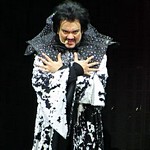
Belousova Le Konspekti Zanyatij Po Razvitiyu Rechi
One man's signature was all it would take to end eight years of tortuous negotiations and contentious national referenda. That effort had finally yielded the Lisbon Treaty, a new agreement among members of the European Union that would provide the community with its first constitution and president. The final hurdle was securing that one politician's signature, but European leaders were growing frantic last October because he wasn't answering his telephone. Instead Vaclav Klaus, the Czech president, had embarked on an international tour to promote his new book, 'Blue Planet in Green Shackles,' an anti-global-warming manifesto in which Klaus -- who has denounced Al Gore as an 'apostle of arrogance' -- dismisses manmade climate change as a myth. Klaus's main destination was Moscow, where LUKoil, the giant Russian oil company, was paying for the book's translation. Speaking in the Kremlin, the Czech leader, his white hair closely cropped and mustache fastidiously trimmed, condemned the EU -- which he once compared to the Soviet Union -- as elitist and undemocratic. It was an extraordinary state of affairs: a tiny new EU member impeding, if not quite derailing, a historic community development.
Klaus eventually signed the Lisbon Treaty, but only after his protracted opposition had frayed the EU's already fragile unity. Critics of Europe's rudest politician, as he's been described, accused him of hijacking the treaty in order to steal the limelight. Although most Czechs say their president genuinely believes in his anti-European tirades, many were dismayed.
But Klaus's trip to Moscow raised eyebrows for another reason: to many observers, he appeared to be acting in the interests of the Kremlin, and not for the first time. In the 1990s, Klaus promoted Czech oil and gas agreements with Russia before opposing a deal to buy gas from Norway as 'economically unviable.' (When Moscow cut off supplies flowing through Ukraine in 2006 and 2009, the deal helped enable the Czech Republic to avoid major energy crises.) In 1999, he joined the Kremlin's angry condemnation of NATO's bombing of Yugoslavia over Kosovo. A decade later as president, he appeared to back Russia's invasion of Georgia by declaring that the responsibility of Moscow's former Soviet neighbor was 'unexceptionable and fatal.' Czech President Vaclav Klaus (right) is seen as moving ever closer to Russia and Prime Minister Vladimir Putin.A trained economist, Klaus has served as prime minister or president during most of the Czech Republic's postcommunist history.
Sep 25, 2010 Czech Power Games: How Russia Is Rebuilding Influence In The Former Soviet Bloc.
The staunch free-marketeer -- who keeps a photograph of Margaret Thatcher prominently displayed in his office -- oversaw the transition of a centrally planned economy into one of the former Soviet bloc's most successful markets before emerging as a leading voice of the country's right wing. So you'd be forgiven for thinking it somewhat of a paradox that he's come out on Moscow's side on almost every major issue. Klaus's resistance to signing the Lisbon Treaty, despite being obligated to do so by Czech law, put him in step with the Kremlin yet again, this time over one of Moscow's biggest foreign-policy goals: splitting European unity. Klaus has backed Moscow so consistently over the years that jokes in Prague about his being a Russian agent prompt chuckles tinged with more than a little nervousness. Journalist Jaroslav Plesl, who has investigated Russian influence in the Czech Republic, believes it doesn't matter whether the gossip contains any truth. 'You don't need to see any documents, even if they exist,' he says.

'The Russians want the European Union to be as weak as possible, and for that purpose, Klaus serves their interests well.' But there are worries that Klaus, who refused requests for an interview, is just the tip of the iceberg. A growing number of Czech politicians across the spectrum appear to have ties to Russia in one or another form, and it's setting off alarm bells. Twenty years after the end of communism -- and four decades after the Red Army crushed the Prague Spring in 1968 -- a few lonely voices are warning that the Czech Republic and its neighbors are in danger of falling under Moscow's influence once again. This time, they say, the threat isn't from Russia's tanks but the one business in which Russia leads the world: energy. Digitech qp 6013 and windows 7 driver download.
That was the message from a group of prominent Central and Eastern European politicians led by former President Vaclav Havel, Klaus's predecessor and nemesis, who published an open letter to President Barack Obama last summer. The West, they wrote, should abandon its mistaken belief that the end of the Cold War and the expansion of the EU and NATO into the former Soviet bloc guaranteed their countries were 'safe.' Criticism that Washington may be abandoning allies in Central and Eastern Europe in favor of 'resetting' relations with Moscow is growing ever louder. But some believe it's distracting from the real threat in this part of the world. A handful of politicians, journalists, and former intelligence officers say rampant corruption is making Czechs vulnerable to exploitation by a resurgent Russia with ready cash to help fulfill its burning desire to reestablish its influence over former Soviet bloc countries. Unlike Western firms, which lobby largely in their own interests, Russian state-controlled and private enterprises play an integral role in Kremlin foreign policy, and they're 'undoubtedly influencing the behavior of various Czech political parties and politicians,' Havel said in an interview.